In a world of “alternative facts” and AI-generated deep fakes, consumers often long for raw honesty. What might this look like? It might look like owning your screw-ups and turning them into assets.
For those of us old enough to remember the movie “Crazy People,” we fondly remember Dudley Moore’s character coming up with epic taglines like “Volvo—they're boxy but they're good.” And “United: Most of our passengers get there alive.” If only that happened in real life!
Fortunately, it does. Recently, we ran across an article titled, “6 Examples of Insane Honesty in Content Marketing,” which is an absolute delight to read. The examples were classics taken from around the world, so it does make one wonder if one could find more modern examples and those that happened here. So we did a little digging . . . and came up with a few.
1. Domino’s Pizza: “Our Pizza Sucked” Campaign
When Patrick Doyle took over Domino’s Pizza in 2010, the company’s sales were plummeting and a video of a Domino’s employee spitting into food had gone viral. Instead of sending the company into damage control, however, Doyle tried insane honesty instead.
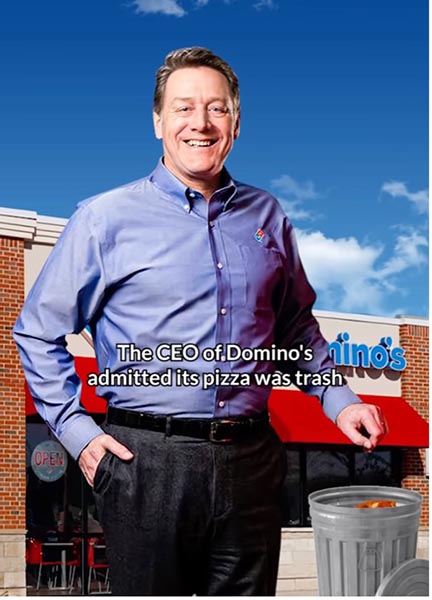
Source: @OurFuture
Doyle took full responsibility for declining sales. Instead of pushing back against the public’s anger, he agreed with it. Then he put himself on video admitting that the pizza was terrible and explaining how he was investing millions in reinventing Domino’s supply chain and its recipe. So the “Our Pizza Sucks” Campaign was born.
According to a report by CBS News, the chain's sales grew 14.5% to $362 million in Q2 2010, and up 16.5% for the first six months of the year—the period in which the campaign was launched.
Check out the great recap of this campaign here.
2. Patagonia: “Don’t Buy This Jacket” Campaign
In 2011, outdoor clothing company Patagonia ran a full-page ad in The New York Times on Black Friday urging customers not to buy their jackets unless they really needed them. The campaign aimed to promote sustainability and encourage conscious consumption.
In the ad, Patagonia communicated the significant environmental cost of producing the jacket in question:
- 36 gallons of water (equivalent to fulfilling the daily needs of 45 people).
- 20 pounds of carbon dioxide emissions (24 times the weight of the jacket).
- Generated waste that amounts to two-thirds of the jacket’s weight.
This is quite an admission for a company that prides itself on sustainability. Exposing the environmental realities of its popular product is a risk, especially since, like all companies, Patagonia is in the business of making money. Why put out an advertisement ostensibly designed to dampen sales? On its website, it addressed the question here.
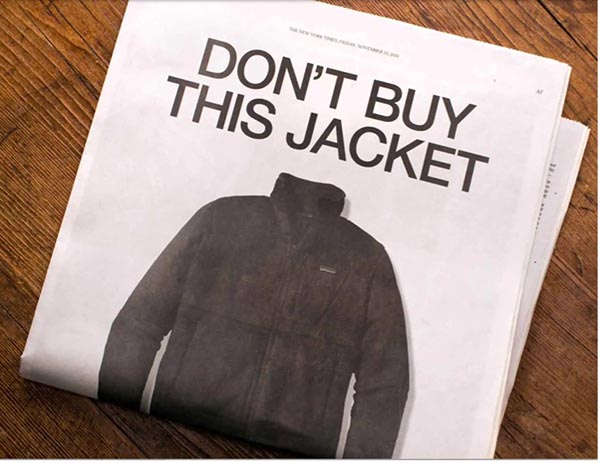
Source: Patagonia
Its point was that, while all companies are in business to make money, for a sustainable company like Patagonia, it would be hypocritical not to address the environmental damaged being caused by consumerism and draw attention to it. Then, well, let the chips fall where they may.
Those were some profitable chips. Patagonia’s sales reportedly rose 30% in the month after the campaign. But, as Medium reported, “It was a masterclass in brand values communication.”
3. Burger King: Moldy Whopper Campaign
In 2020, Burger King launched a campaign featuring images of a moldy Whopper to emphasize their decision to remove artificial preservatives in their food. The ad shows the burger on a stand day after day after day. As time passes, the viewer watches the burger collapse, the bun turn green and yellow, and mold start to grow. Disgusting, right? At the end of the video, the text says, “The beauty of no artificial preservatives.”
The campaign clearly aimed to highlight the underbelly of the fast-food industry—food so packed with chemicals that it is essentially embalmed, while at the same time contrasting with its decision to remove artificial ingredients and impact thereof. Effective, but that moldy burger…Once you’ve seen it, it’s hard to unsee.
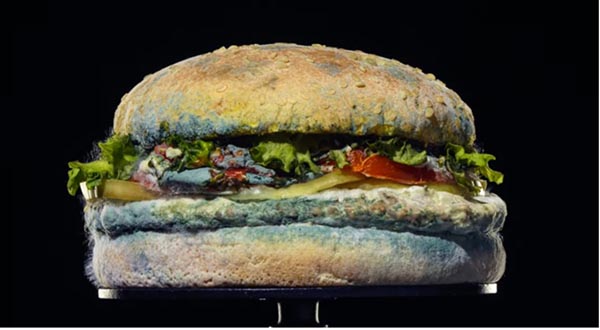
Source: DAVID, INGO Stockholm & Publicis
But it worked. According to DAVID, INGO Stockholm & Publicis, “The campaign was talked about around the world, delivering commercial results for the client and winning numerous awards for outstanding creativity. The campaign generated a 14% sales increase, 8.4 billion impressions and $40 million in Earned Media Value—as well as an uplift in positive brand sentiment of 88%.”
Where Else Can We Use Insane Honesty?
While insane honesty work can work, it’s not for everyone. It is highly situational. In Domino’s case, its public perception and sales were on such a downslide that the company had little (if anything) to lose. In the other two cases, the focus wasn’t on their own companies, but on the underbelly of their industries as a whole.
Not every company or brand is in a position to take advantage of this technique, but for those that are, its impact can be powerful. In fact, more companies and industries could probably benefit from giving it a try. Imagine taking this approach and applying it as follows:
- Fast food chains: Brands like McDonald's or KFC could use insane honesty to address common perceptions about the quality of their food, their sourcing practices, or their impact on health and the environment.
- Tech companies: Companies like Apple or Samsung could use insane honesty to address criticisms about their product pricing, planned obsolescence, or labor practices in their supply chains.
- Fashion brands: High-end fashion brands could use insane honesty to address criticisms about their pricing strategies, ethical sourcing practices, or the environmental impact of their production processes.
- Automobile manufacturers: Car companies could use insane honesty to address concerns about emissions, safety issues, or the environmental impact of their vehicles.
- Beverage companies: Soft drink companies could use insane honesty to address concerns about the health impact of their products, their marketing practices targeting children, or their environmental footprint.
Insane honesty in marketing can be risky, but history shows that it can also build trust with consumers, allow brands to create true and high-contrast differentiation from competitors, and drive positive change within their industries. Oh, and increase sales quite a bit, too.
Do you have any clients that could benefit from some insane honesty?

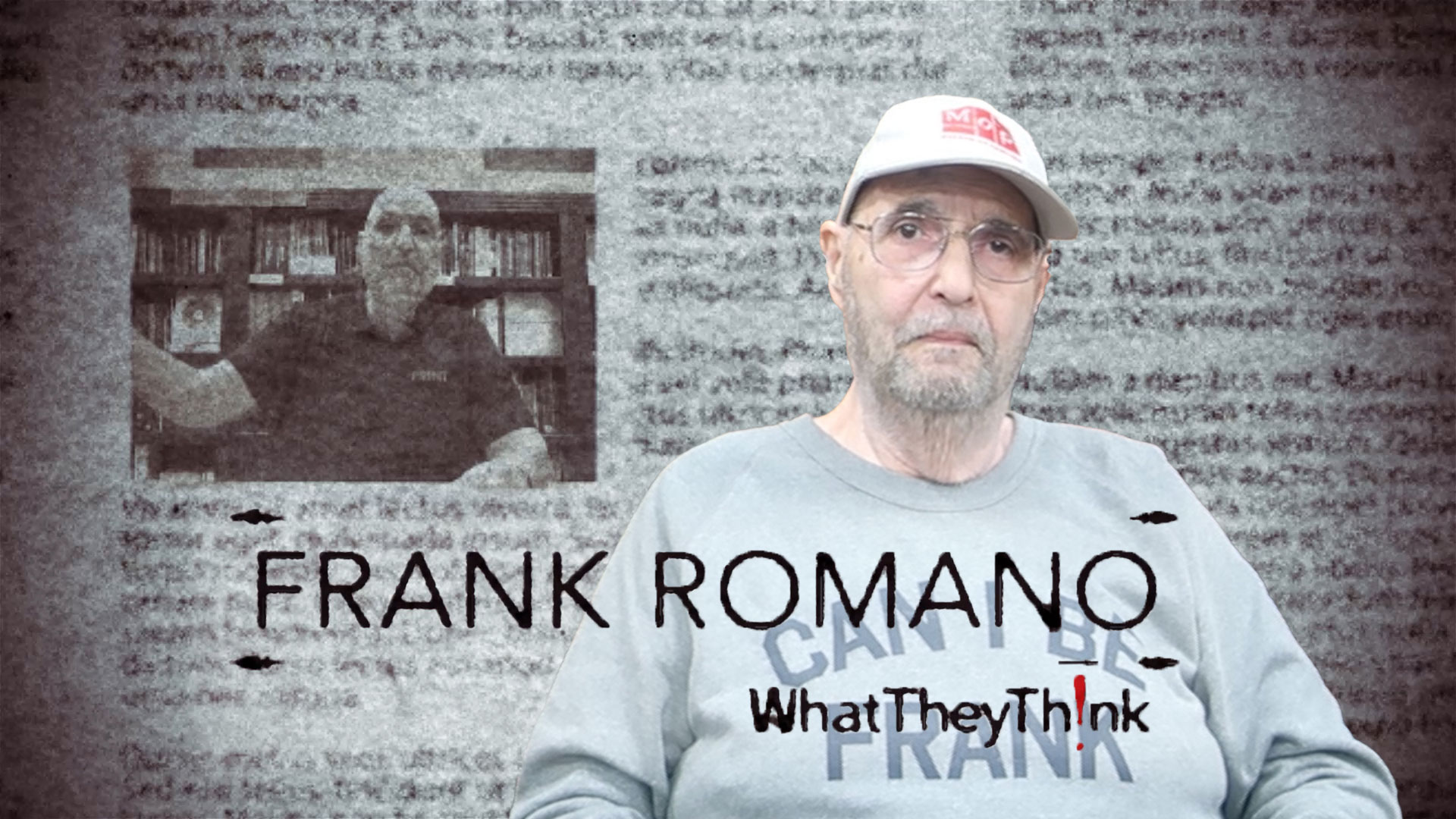
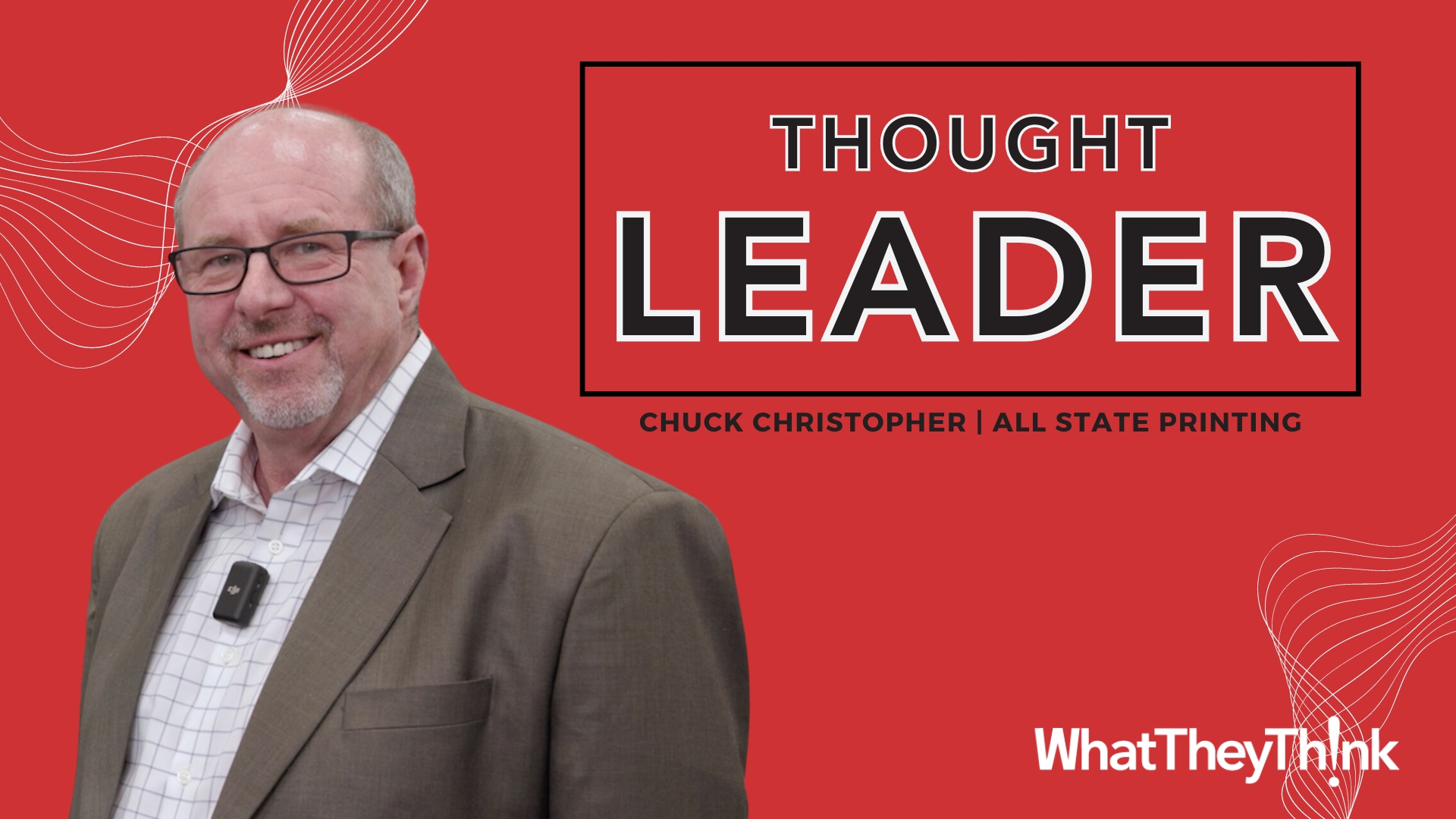
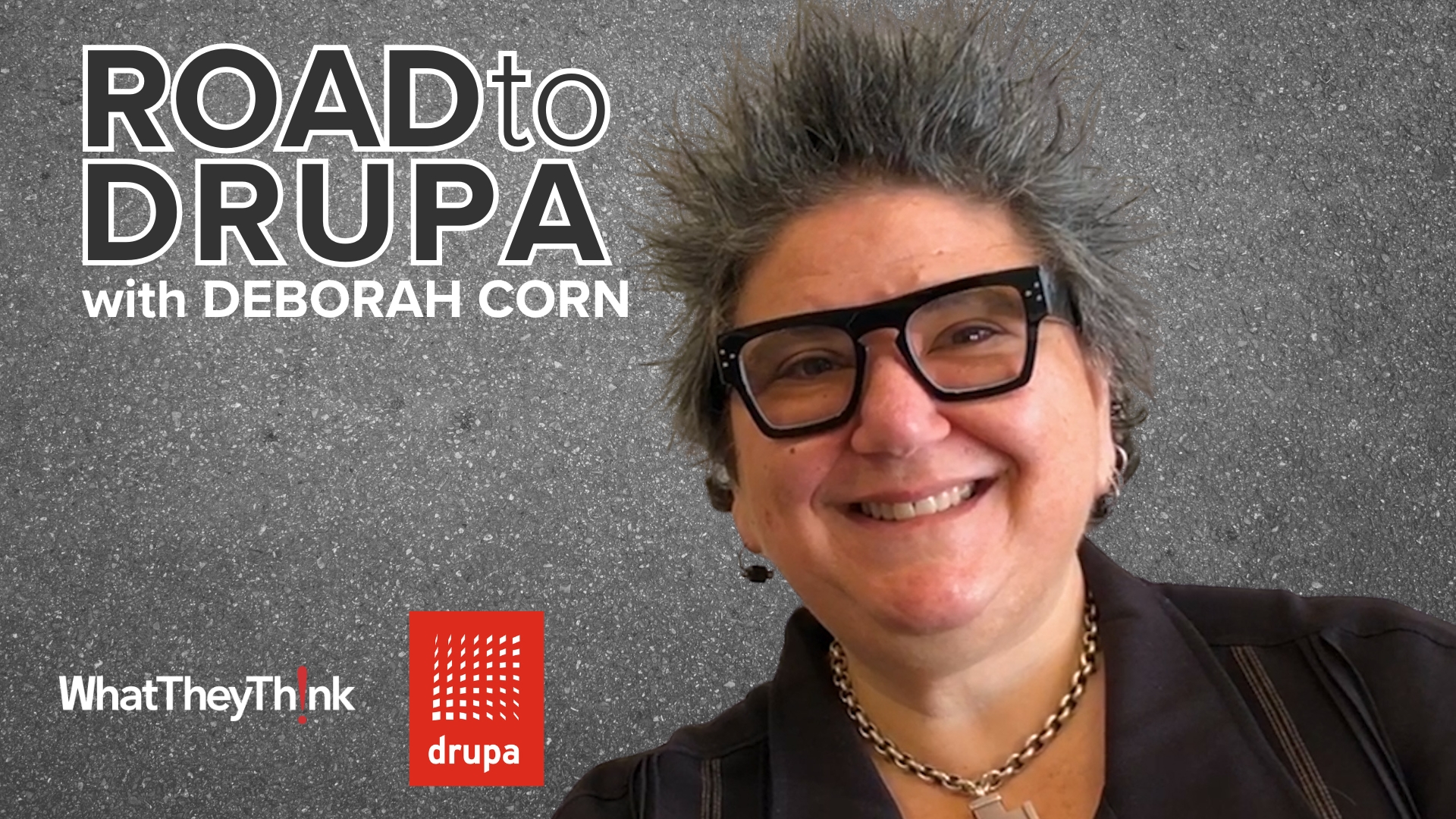
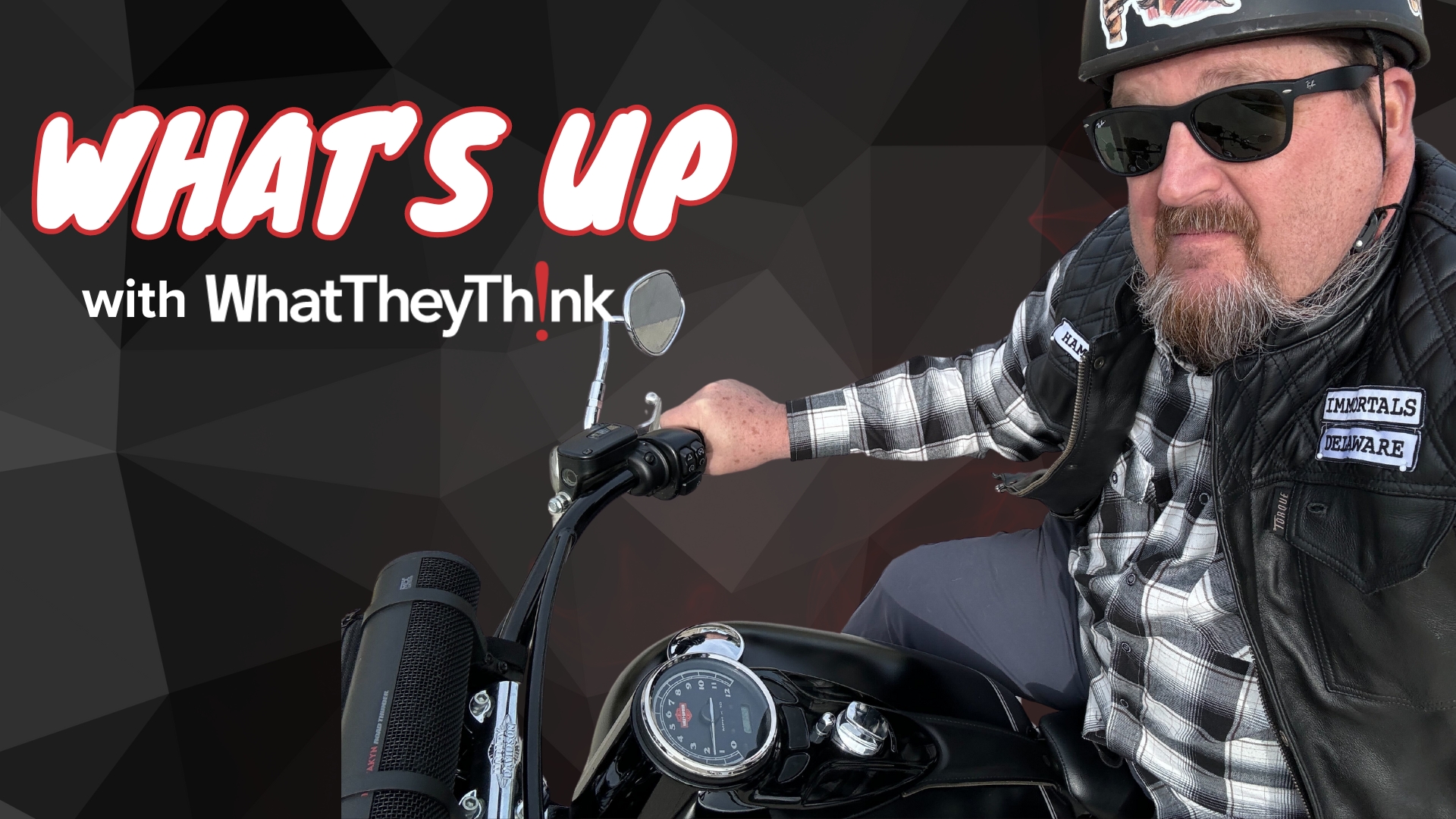
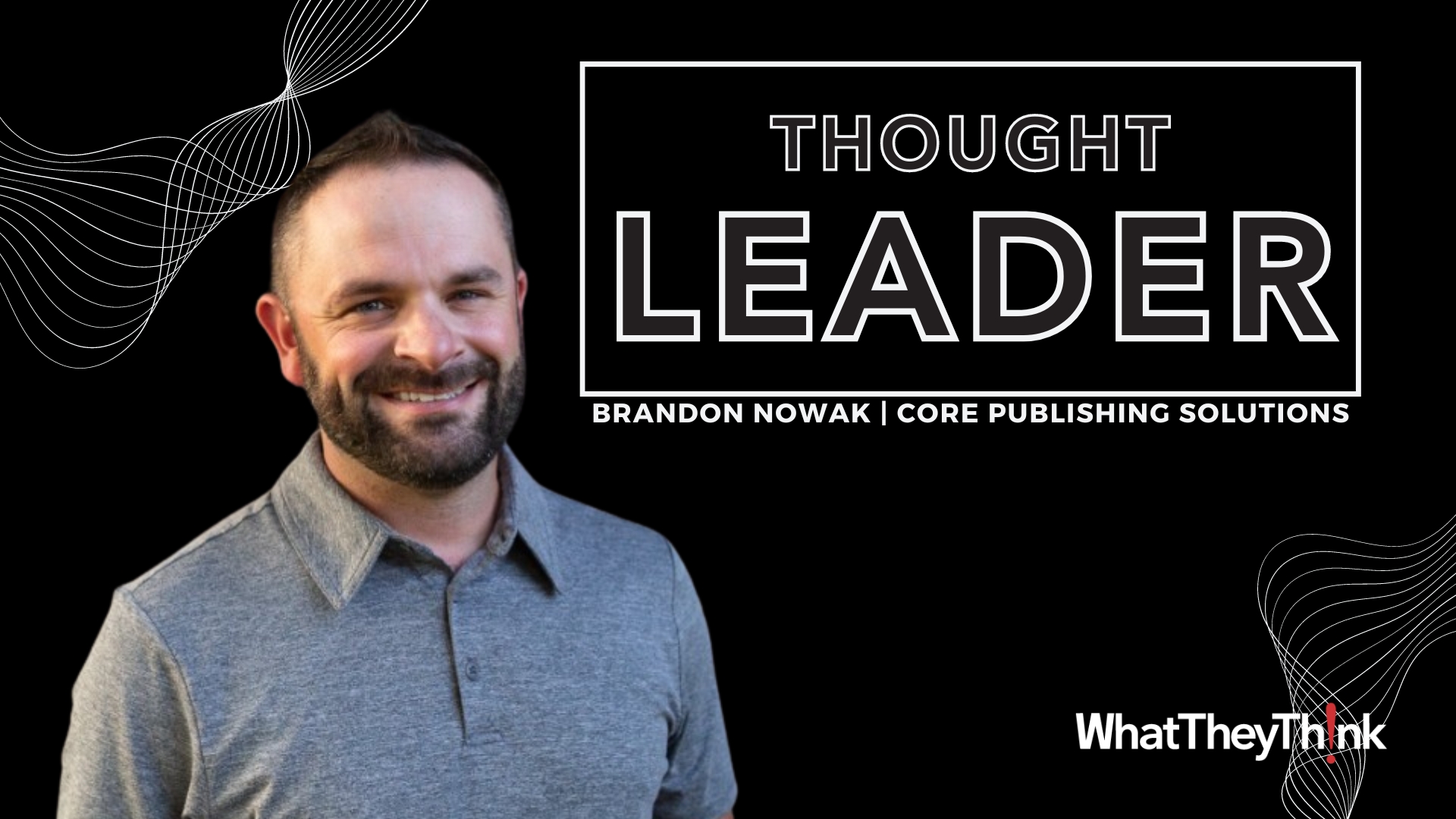
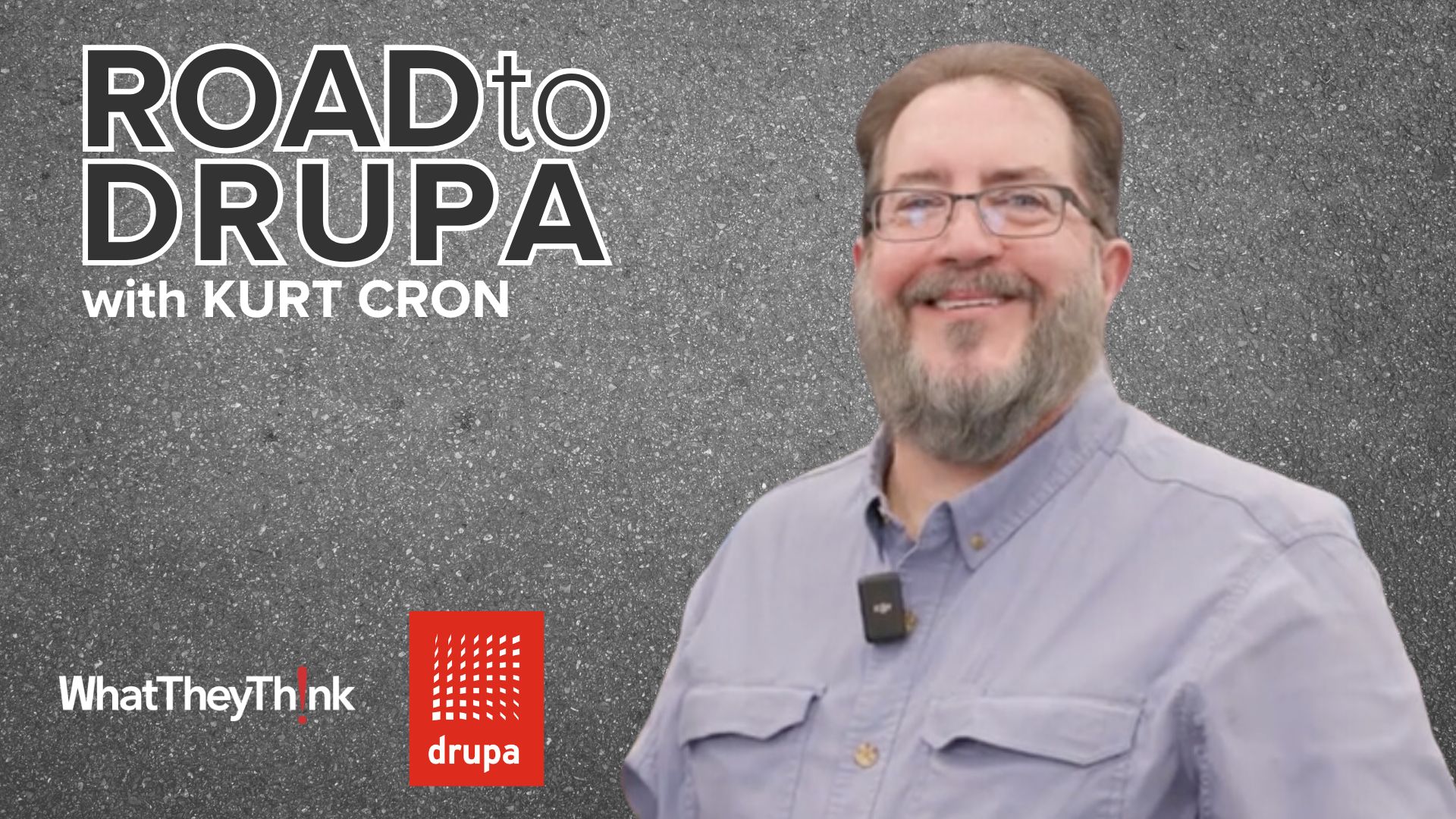



Discussion
Join the discussion Sign In or Become a Member, doing so is simple and free